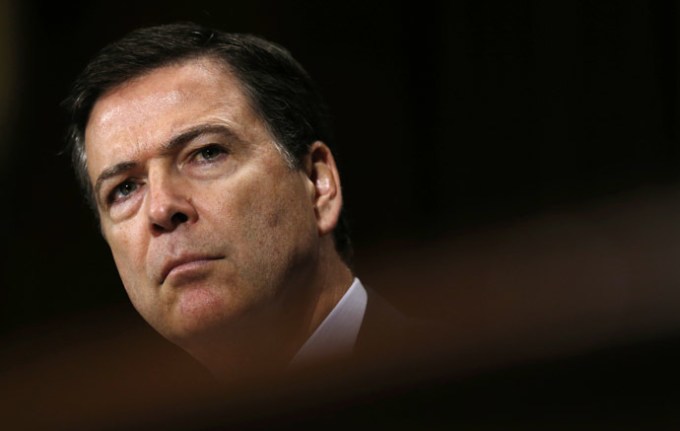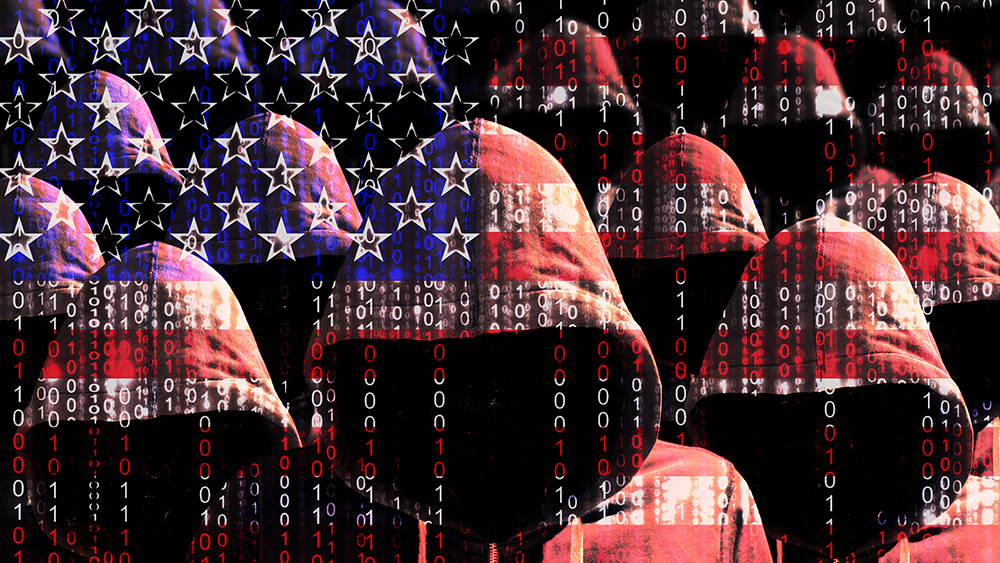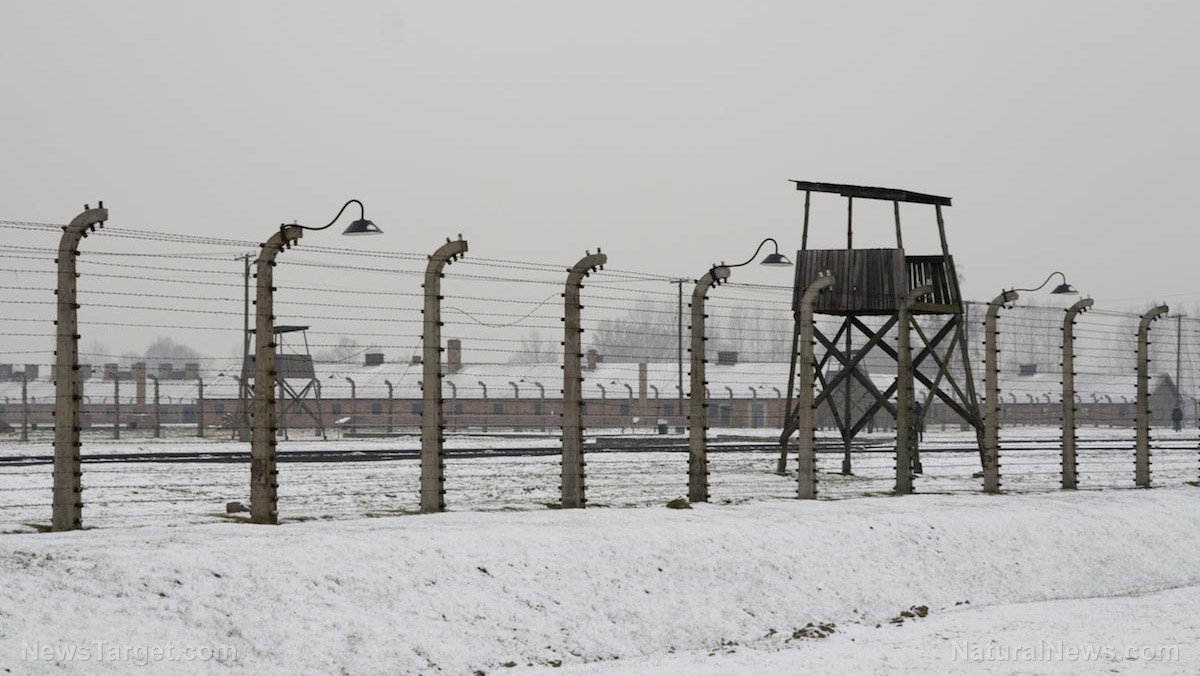America’s national security at risk as China widens lead in cyber skills
11/18/2024 / By Belle Carter

A Washington, D.C.-based think tank has warned that the Chinese government’s backing of hacking competitions in the nation has widened the cyber skills gap between the communist nation and the United States, placing America at a strategic disadvantage and posing national security risks.
These kinds of competitions have surged in China over the recent years and they are now raising public interest as well as threats in America.
“China has built the world’s most comprehensive ecosystem for capture-the-flag (CTF) competitions, the predominant form of hacking competitions, ranging from team-versus-team play to Jeopardy-style knowledge challenges,” the Atlantic Council said in a recent report.
CTF competitions are games where participants solve security challenges to capture hidden pieces of data (the “flags”) in systems, websites or applications. They provide a controlled environment for hackers to practice problem-solving, reverse-engineering and secure coding.
The report further indicated that these contests were a response to Chinese President Xi Jinping’s call for the nation to become a “cyber powerhouse” a decade ago.
To date, China has already held over 120 unique CTF competitions since 2004 with 54 recurring annually, including XCTF, Spring and Autumn Cup, GEEKCON/GeekPwn, CTFWar, ISCTF and Qiang Wang Mimic Defense International Elite Challenge.
The Chinese Ministry of Public Security‘s Wangding Cup said that the average annual attendance is 36,310. The ministry sponsored 13 unique competitions since 2015, attended by nearly a total of 308,000 cyber enthusiasts.
In addition, programs in cybersecurity in schools and universities have been standardized. Also, the National Cybersecurity Talent and Innovation Base capable of certifying 70,000 cybersecurity experts per year was established. It paved the way for the staging of hacking competitions.
In fact, China’s Ministry of Education sponsored 22 contests involving nearly 311,000 participants. China’s top spy agency, the Ministry of State Security, has been a sponsor at four events totaling over 49,000 attendees since 2016.
“China’s CTF ecosystem is unparalleled in size and scope – something akin to four overlapping National Collegiate Athletic Associations, each with a primary government sponsor just for cybersecurity students to exercise their skills,” the Atlantic Council stated. “Many of these marquee competitions include talent-spotting mechanisms for recruitment.”
U.S. CTF competitions focus on defense while those in China prioritize offense
Co-author of the Atlantic Council report Dakota Cary said the difference in focus between Chinese and American CTF competitions is that the U.S. generally hosts defense-oriented competitions designed to assess participants’ ability to secure their systems against attack. In China’s CTF competitions, on the other hand, offensive skills are tested and prioritized.
According to Cary, perceptions of U.S. dominance when it comes to cyber capabilities are now outdated.
“Large-scale, back-end collection is now incredibly difficult due to pervasive encryption,” he said. “The U.S. system was previously unparalleled, but many in the field now admit that China is the more capable actor. The scale of its research community dwarfs other nations, both due to China’s size and its focused effort over the last decade.”
In September, the Federal Bureau of Investigation (FBI) said it disrupted the increased campaigns of state-associated hacking groups such as Flax Typhoon, which compromised more than 200,000 home routers, cameras and other consumer devices nationwide. (Related: China claims Volt Typhoon cybercrime group is a CIA asset invented to discredit it.)
FBI director Christopher Wray and other intelligence officials have warned Chinese hackers seek to lay the groundwork for the country to disrupt critical infrastructure when the moment is right, as well as engage in intellectual property theft.
“The PRC has a bigger hacking program than every other major nation combined,” Wray said in a Congressional hearing earlier this year. He warned that hackers are laying the groundwork to “wreak havoc” on American infrastructure when doing so would benefit China.
However, Beijing dismissed such warnings as invalid and hypocritical, citing its reports of U.S. cyber campaigns.
“It is normal to strengthen technical exchanges and promote scientific and technological innovation. This report is full of malicious speculation about China, and China firmly opposes it,” Liu Pengyu, a spokesperson for the Chinese embassy in the U.S., told Newsweek.
Visit NationalSecurity.news for stories related to the recent cyber attacks that endangered the security of the nation.
Watch the video below that talks about how Chinese hackers target the Trump family and White House aides.
This video is from the NewsClips channel on Brighteon.com.
More related stories:
White House official: China maintained PERSISTENT ACCESS to U.S. networks for years.
FBI claims it disrupted Chinese hacking campaign on critical U.S. infrastructure.
Leaked documents reveal China’s hacking abilities and potential targets.
Will hackers cripple America with a cyberattack? Expert says it might happen in 2024.
Sources include:
Submit a correction >>
Tagged Under:
big government, chaos, China, communism, computing, conspiracy, cyber skills, cybersecurity, cyberwar, dangerous, Glitch, hacking, information technology, national security, panic, strategic disadvantage, Volt Typhoon, Xi Jinping
This article may contain statements that reflect the opinion of the author
RECENT NEWS & ARTICLES
COPYRIGHT © 2017 PRIVACY WATCH NEWS




















